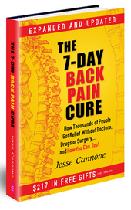Lactic Acid Bacteria Benefits
Using lactic acid bacteria is a simple way to get many health benefits. This page describes a number of the benefits. There are other pages on this site that describe the
lactic acid fermentation process
and give directions on
how to make sauerkraut.
There are many benefits that we can obtain from lactic acid bacteria. They and/or the products of the related fermentation process can:
- break down foods, improving digestibility
- stimulate peristaltic movement of the intestines to improve regularity.
- assist blood circulation.
- normalizes acidity of gastric (stomach) juices
- help to maintain the correct
body pH
(acid-alkaline balance)
- help (with regular use) to protect against and heal chronic disorders like cancer.
- act as a disinfectant, killing infectious bacteria
- help restore the level of healthy bacteria.
- produce vitamin B12 which develops with the build-up of lactic-acid in fermented vegetables. This is essential to blood-cell formation and DNA synthesis.
In the book Healing with Whole Foods the author Paul Pitchford found that raw sauerkraut:
- promotes better nutrient absorption
- promotes the growth of healthful intestinal flora.
- enhances gastro-intestinal renewal
- increases the effectiveness of the properties of cabbage
The human digestive tract, including the colon, intestines, saliva, and pancreas, is in it's proper and healthful balance when there is a preponderance of healthful micro-organisms including lactobacilli such as the lactic acid-producing bacteria. An important aspect of keeping this proper balance is to also have plenty of live enzymes in the digestive tract.
A scientific summary of the benefits of lactic acid bacteria is: Ouwehand AC, Salminen S, Isolauri E. Probiotics: an overview of beneficial effects. Antonie Van Leeuwenhoek. 2002;82:279-89.)
Read it
here.
Several specific benefits are covered below.
Treatment of Candida: Candida is a commonly used term to describe the overgrowth of and subsequent health problems caused by the naturally present yeast, Candida albicans, in the human digestive tract. In healthy humans, the extent to which candida proliferates is usually kept to a minimum by the lactic acid bacteria and other healthful micro-organisms. Sometimes, as a result of antibiotics and certain toxic aspects of our environment, the healthful micro-organisms get diminished. This can result in an increase in Candida and lead to health problems. Raw cultured vegetables are rich in lactobacilli, including L. plantarum and L. acidophilus, which help to create a healthy colonic environment in which yeast populations, and pathogenic bacteria are controlled.
Raw vegetables cultured by lactic acid-producing bacteria are especially good for people taking antibiotics or birth control bills, pregnant women, and diabetics. These are all high risk groups for Candida and other yeast disorders.
Prevention of Colon Cancer: Dr. Johannes Kuhl, a German doctor and author of several books including "Cancer in Check", found evidence that regular consumption of raw cultured vegetables helps to prevent cancer. Laboratory investigations have demonstrated anti-mutagenic effects of lactic acid bacteria probably due to them binding with and detoxifying carcinogenic substances formed in cooked meat. (Wollowski I, Rechkemmer G, Pool-Zobel BL. Protective role of probiotics and prebiotics in colon cancer. Am J Clin Nutr. 2001;73:451S-455S)
Lowers cholesterol: Some studies have shown that lactic acid bacteria can lower total and LDL cholesterol.
Lowers High Blood Pressure: Clinical trials have shown that the use of milk fermented by lactic acid bacteria can reduce blood pressure. (ACE inhibitor-like peptides are produced during fermentation.)
Improving Immune Function and Preventing Infections: lactic acid bacteria are thought to have several presumably beneficial effects on immune function. They may protect against pathogens by means of competitive inhibition (i.e., by competing for growth) and there is evidence to suggest that they may improve immune function by increasing the number of IgA-producing plasma cells, increasing or improving phagocytosis as well as increasing the proportion of T lymphocytes and natural killer cells. (Reid G, Jass J, Sebulsky MT, McCormick JK. Potential uses of probiotics in clinical practice. Clin Microbiol Rev. 2003;16:658-72)
Respiratory Tract Infections: Clinical trials have demonstrated that probiotics may decrease the incidence of respiratory tract infections in children. (Hatakka K, Savilahti E, Ponka A, Meurman JH, Poussa T, Nase L, Saxelin M, Korpela R. Effect of long term consumption of probiotic milk on infections in children attending day care centres: double blind, randomised trial. BMJ. 2001;322:1327)
Tooth decay: Lactic acid bacteria may play a role in reducing dental cavities (caries) in children. (Nase L, Hatakka K, Savilahti E, Saxelin M, Ponka A, Poussa T, Korpela R, Meurman JH. Effect of long-term consumption of a probiotic bacterium, Lactobacillus rhamnosus GG, in milk on dental caries and caries risk in children . Caries Res. 2001;35:412-20)
Ulcers: Lactic acid fermented foods may also aid in the treatment of Helicobacter pylori infections (which cause peptic ulcers) in adults when used in combination with standard medical treatments. (Hamilton-Miller JM. The role of probiotics in the treatment and prevention of Helicobacter pylori infection. Int J Antimicrob Agents. 2003;22:360-366.)
Diarrhea: Lactic acid bacteria foods and supplements have been shown to be effective in the treatment and prevention of acute diarrhea; decreasing the severity and duration of rotavirus infections in children as well as antibiotic-associated and travelers diarrhea in adults. (Cremonini F, Di Caro S, Nista EC, Bartolozzi F, Capelli G, Gasbarrini G, Gasbarrini A. Meta-analysis: the effect of probiotic administration on antibiotic-associated diarrhoea. Aliment Pharmacol Ther. 2002;16:1461-1467)
Reducing Inflammation: Lactic acid fermented foods and supplements have been found to reduce
inflammation
and may prevent reoccurrences of inflammatory bowel disease.
Milk Allergies: Evidence shows that lactic acid bacteria may improve milk allergies and decrease the risk of atopic eczema in children. (Kirjavainen PV, Salminen SJ, Isolauri E Probiotic bacteria in the management of atopic disease: underscoring the importance of viability. J Pediatr Gastroenterol Nutr. 2003;36:223-227) and (Kalliomaki M, Salminen S, Poussa T, Arvilommi H, Isolauri E. Probiotics and prevention of atopic disease: 4-year follow-up of a randomised placebo-controlled trial. Lancet. 2003;361:1869-1871)
So Many Benefits: Raw cultured vegetables have been effective in the treatment of a number of other disorders, including: peptic ulcers, ulcerative colitis, colic, various food allergies, cystitis, vaginal infections, constipation, stomach-aches and other digestive disorders.
Since antibiotics destroy good and bad bacteria alike in our systems, eating vegetables fermented by lactic acid bacteria during and after taking antibiotics helps rebuild our body's defenses. Think of these friendly bacteria as probiotics (which is what they are actually called) as opposed to antibiotics:
| Probiotics |
Antibiotics |
| in favor of life |
against life |
| friendly bacteria |
kills all bacteria |
|
Keep up to date with
valuable insights into
pain management via
a healthy lifestyle.
Receive the monthly
Natural Pain Relief
Guide Newsletter.
News articles, health
tips, specials, freebies.
Enter your email and name
in the form to the right.
|
|
|








New! Comments
Have your say about what you just read! Leave me a comment in the box below.